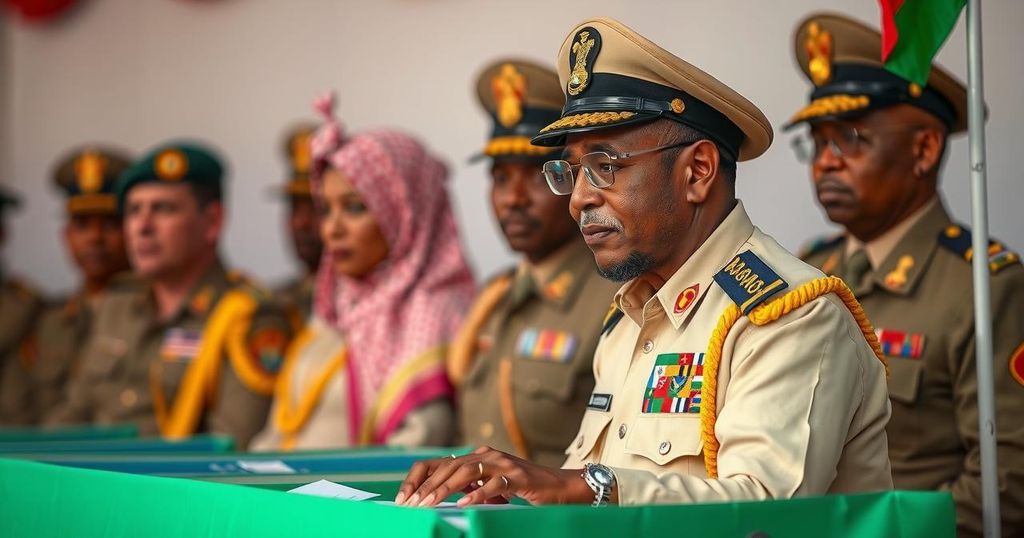Chad Holds General Election to End Military Rule Amid Low Turnout

Chad conducted a general election on Sunday, aimed at concluding military rule. Voter turnout was low, with just 38 percent participating as the opposition called for a boycott, alleging pre-decided outcomes. President Mahamat Idriss Deby Itno urged citizens to vote, while opponents criticized the electoral process. The elections faced allegations of fraud, amidst ongoing security challenges.
On Sunday, Chad held a general election aimed at transitioning from three years of military rule, although voter turnout was projected to be low due to an opposition boycott. The election management agency reported a turnout of approximately 38 percent, with dissenting voices claiming the results were predetermined. Opposition leader Succes Masra remarked on the widespread apathy, noting that many voters heeded calls to remain at home.
President Mahamat Idriss Deby Itno, who assumed power in 2021 following his father’s lengthy rule, encouraged participation, claiming the election day was historic. However, some voters expressed skepticism about the electoral process, citing frustrations with unmet needs and a lack of genuine democracy. Meanwhile, the elections were marred by reported irregularities, including missing ballots, prompting calls for vigilance against potential fraud.
As polling stations opened, they were overseen by foreign observers, amidst security concerns linked to ongoing attacks by Boko Haram and regional conflicts. The government characterized the elections as a critical juncture in the path toward democratic governance, despite the challenges faced throughout the election period.
Chad has been under military rule since the death of President Idriss Deby Itno in 2021. Following his death, his son, Mahamat Idriss Deby Itno, took charge, promising a transition to democratic governance. This election serves as a crucial test of these promises, happening amid significant public discontent and calls for electoral reforms from opposition parties. The presence of foreign observers indicates a level of international scrutiny, while the local political landscape is further complicated by regional instability and public apathy toward the electoral process.
The recent general election in Chad signals both a potential shift towards democratic governance and the substantial challenges that accompany it. Despite the government’s efforts to promote participation and legitimacy, widespread voter apathy and allegations of prearranged outcomes undermine these goals. The low turnout, compounded by skepticism from the opposition and reports of electoral fraud, reflects deep-rooted issues in Chad’s political milieu, suggesting a need for ongoing reforms and engagement. The outcome of this election will be pivotal in determining Chad’s future direction as it navigates the transition away from military rule.
Original Source: www.kpvi.com








